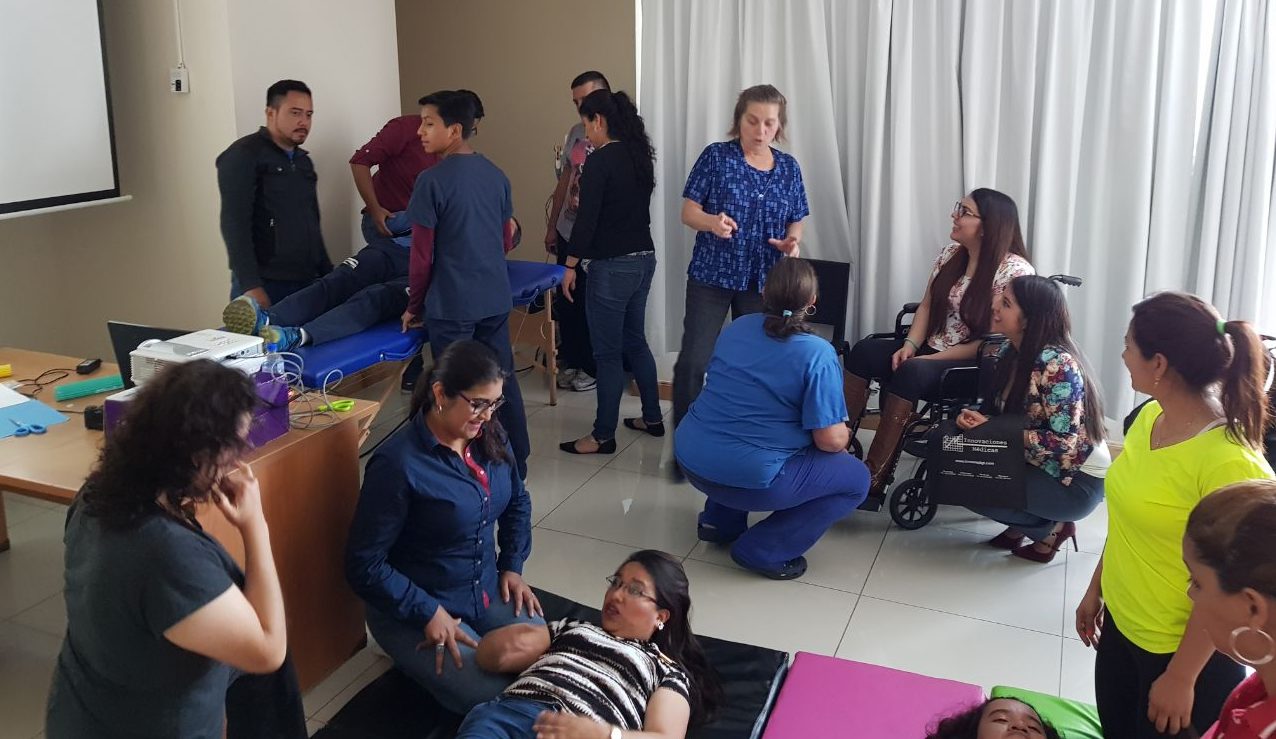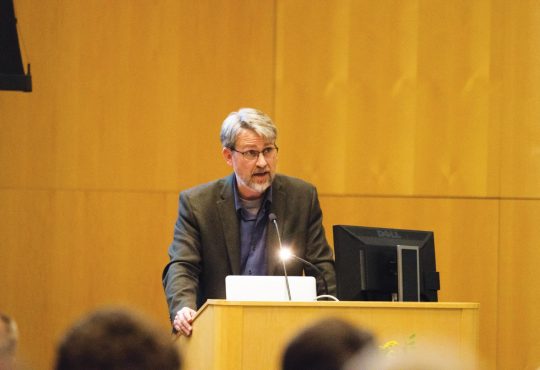
University of Puget Sound is known for having incredible professors on staff. An example of just how gifted members of the faculty are became recently apparent when the American Physical Therapy Association announced Professor Jennifer Hastings as the recipient of the 2019 Henry O. and Florence P. Kendall Practice Award.
This is a national award that is awarded if the individual has practiced physical therapy for at least 15 years. The criteria are that winners must have impacted or changed the way physical therapy is practiced nationally, done something to change the way that other physical therapists practice and improved the abilities of others.
“What I do clinically, my speciality area, is wheelchair seating, so how do you get people to sit in a wheelchair comfortably and actively all day long?” Professor Hastings said.
Professor Hastings’ work has impacted people who use wheelchairs all across the country. She got her start originally working with veterans in the Pacific Northwest, and the Seattle Department of Veteran Affairs (Seattle VA).
“My speciality was spinal cord injury. I practiced for 20 years at the Seattle VA, and that overlapped with when I was starting to teach here. So what I specialized in for rehab was spinal cord injury. And specifically people who are spinal cord injured and can’t walk … the people who are going to live from a wheelchair for the rest of their lives,” Professor Hastings said.
“There was a lot of science that said they were also going to have shoulder pain, and the reason was because there was this belief that the shoulders are not designed for weight-bearing, and that, you know, if you’re pushing a wheelchair that was considered weight-bearing, and if you’re now picking yourself up with your arms that was considered weight-bearing,” Professor Hastings said.
“Basically I said I don’t agree, I think it’s the wrong philosophy, and if you’re already going to be spinal cord injured for the rest of your life, the last thing you want is someone telling you you’re also going to be in pain,” Professor Hastings said.
Professor Hastings made it her goal to prove that people could live from a wheelchair comfortably without shoulder pain, if they had good posture.
“So with posture as the foundation for how they move, whether they’re doing transfers or propelling a chair, posture is the foundation. And how you shape the chair sets up the posture in somebody who is paralyzed. So they don’t have any muscles to hold against gravity, so you’ve got to position them in the chair in a way that gives them ideal posture. So that’s what I spent basically 20 years working on,” Professor Hastings said.
Professor Hastings highlighted that new models for wheelchairs, called ultra light rigid chairs, started coming onto the market as she was beginning to work in this area of physical therapy. She got the chance to work with the new equipment as it developed and structure her methods around it.
“So this kind of chair, which is called an ultra light rigid chair, I was one of the first people to call it a regular-use chair instead of a sports chair, and getting people to use high-end equipment on a regular basis instead of just for basketball, and that was a huge change,” Professor Hastings said.
Although she started out working mostly with veterans and people with traumatic spinal cord injuries, Professor Hastings’ work has spread throughout the disabled community. After working at the Seattle VA, Hastings started a private practice and ended up seeing patients with cerebral palsy and spina bifida as well. She is now listed as the go-to seating expert on the Spina Bifida Association page, something that was done without telling her, which she finds funny.
Professor Hastings wants her work to be shared with the world so that it can help as many people as possible. She teaches other clinical therapists and her students her methods every chance she gets.
For instance, she recently traveled down to Bend, Oregon to help out a patient who is a wheelchair user and the patient of a Puget Sound alum. Professor Hastings was going to see her in Tacoma, but thanks to the logistics of wheelchair travel, she decided it would be easier to go down to Bend. But since she isn’t licensed to practice in Oregon, she will instead be travelling and taking time out of her busy schedule to teach her methods to the staff of the clinic so that they can help this patient.
“This is the kind of thing I do because it’s just not pervasive enough. People don’t know this stuff well enough to be able to treat her in Oregon, which is crazy. It’s crazy that someone should have to come from Bend to see me. So I love that I have a special expertise. I am thrilled that I’m getting this award for my special expertise, but it’s like, people need to just do it. It needs to not be mine. I am trying so hard to push it out and share,” Professor Hastings said.
“I don’t teach to show off, I teach to share. So I want you guys to do this, really do this,” Professor Hastings concluded.
Professor Hastings’ work has had a huge impact and relieved unnecessary pain for many people. It is incredible to see her properly honored for her hard work.




